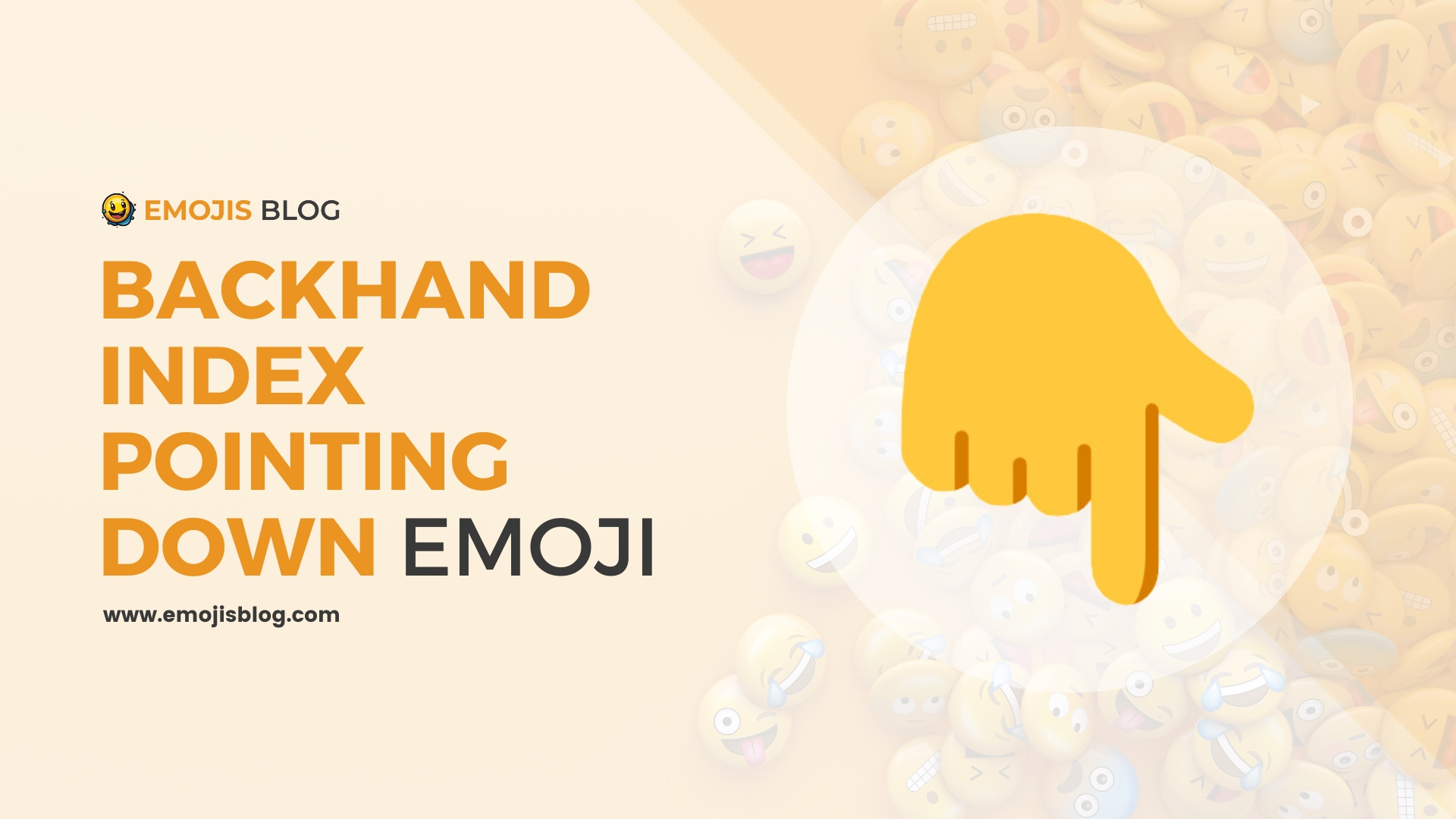What Does The Backhand Index Pointing Down Emoji Mean 👇
👇
The Meanings Of Backhand Index Pointing Down Emoji 👇
The backhand index pointing down emoji 👇 is a graphical representation of a human hand gesture, where the back of the hand is shown with the index finger pointing downwards. This emoji is commonly used in digital communication to draw attention to information or content that follows the message, serve as a directional guide, emphasize the importance of a statement, or indicate a call to action. Its usage spans texts, social media, instructional content, and more, making it a versatile tool for enhancing the clarity and expressiveness of online interactions.
Technical Information
| Attribute | Information |
|---|---|
| Emoji | 👇 |
| Unicode Version | 6.0 (2010) |
| Emoji Version | 1.0 (2015) |
| Official Name | Backhand Index Pointing Down |
| Unicode Name | BACKHAND INDEX POINTING DOWN |
| Category | People & Body |
| Subcategory | Hand-Single Finger |
| Code Point | U+1F447 |
| Short Code | :point_down: |
| Keywords | backhand, down, finger, hand, point |
| Skin Tone Variations | Yes |
| Platforms Supported | iOS, Android, Windows, macOS, and various social media platforms |
Understanding the Backhand Index Pointing Down Emoji: Meanings and Uses
The backhand index pointing down emoji, represented by the symbol 👇, is a versatile digital icon used across various platforms to convey multiple meanings, ranging from literal to metaphorical interpretations. This emoji depicts a human hand with the backside visible, pointing downwards with the index finger. Its usage in digital communication—be it through text messages, social media posts, or in comments sections—can add a layer of non-verbal cues that enrich the interaction between users. In this article, we delve into the origins, meanings, and diverse applications of this expressive emoji.
Origins of the Emoji
The backhand index pointing down emoji was introduced as part of Unicode 6.0 in 2010 and later added to Emoji 1.0 in 2015. Unicode Standard incorporates a wide array of characters, including letters, digits, symbols, and, importantly, emojis, which have become a language of their own in digital communication. This particular emoji was created to complement the suite of hand gesture emojis, providing users with a way to visually direct attention downwards in a digital format.
Literal Interpretations
At its most basic, the 👇 emoji is used to point downwards in a digital context. This can be particularly useful when someone wants to draw attention to a specific piece of content, such as a comment, a link, or an image posted below the text in which the emoji appears. It serves as a digital analogue of pointing at something in real life, effectively guiding the viewer’s attention to where it is meant to be directed.
Symbolic and Metaphorical Uses
Beyond its literal application, the backhand index pointing down emoji has been adopted for various symbolic and metaphorical uses. Here are some common interpretations:
- Emphasis on Importance: When placed before or after a statement, it can signify the importance or urgency of the message, acting as a visual cue to pay attention.
- Instructional Tool: In instructional content, it may be used to indicate the next step or action the reader should take, such as downloading a file or focusing on a particular detail in an instructional video.
- Humorous or Sarcastic Commentary: In social media, it’s often used in a playful manner to point out something obvious or to add a layer of sarcasm to a post.
- Directing to Links and Resources: A common use is to point to links or resources for further reading or exploration. It’s a shorthand way of saying, “Check this out below.”
Cultural Interpretations
The interpretation of the 👇 emoji can vary across different cultures and contexts. While it is generally seen as neutral, the way it is used can change its perceived tone significantly. It’s always important to consider the audience and the platform when using emojis to ensure the intended message is conveyed correctly.
Conclusion
The backhand index pointing down emoji 👇 is a small but mighty tool in the arsenal of digital communication. Its ability to convey direction, emphasis, and even emotion illustrates the power of visual language in our interconnected, online world. As with all forms of communication, the key to its effective use lies in understanding the context and the audience. Whether pointing out important details, guiding readers to more information, or adding a playful touch to a message, this emoji continues to be a valuable, versatile asset in digital discourse.

